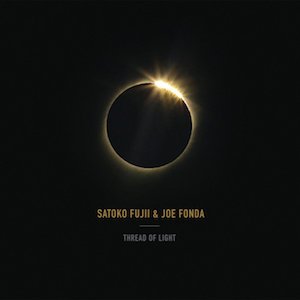Label: Libra Records, 2022
Personnel - Satoko Fujii: piano, composition; Ingrid Laubrock: tenor saxophone; Sara Schoenbeck: bassoon; Wadada Leo Smith: trumpet; Natsuki Tamura: trumpet; Ikue Mori: electronics; Brandon Lopez: bass; Tom Rainey: drums; Chris Corsano: drums.
For her 100th album as a leader, the prolific avant-garde jazz pianist and composer Satoko Fujii assembles a tight-knit nine-piece ensemble filled with talent. The five-part suite that constitutes Hyaku, One Hundred Dreams was composed at home during Covid years, and matured into a compelling work captured live at The DiMenna Center in NYC.
With undeniable virtuosity, Fujii’s dreams begin enigmatic, dreamy and explorative with piano, percussion and electronics giving the example. They are later joined by the booming bass notes of Brandon Lopez, who makes his debut under the command of the bandleader. After a noisy collective passage, it’s the bassoonist Sara Schoenbeck, another novelty in Fujii’s new lineup, who shines with melodic attentiveness and timbral expansion. Following Wadada Leo Smith’s short yet alluring trumpet reverie, the pair of drummers - Tom Rainey and Chris Corsano - assumes a centripetal forward pull with energy. Ceremonial unisons give the piece its conclusion.
The Japanese trumpeter Natsuki Tamura takes control of “Part 2” in its inception, but the grinding bowed bass of the final section oozes some shades that go well with the previous buzzing, low-pitched fervor. “Part 3” features saxophonist Ingrid Laubrock in fashionable creativity with bass and drums. The other horn players work as tension inducers, but it’s the clusters of trumpet, electronics and drums that build up distinct layers of sound. Flurries of notes with exploratory impulses and impetuous interjections are part of the melodic thrust created by Laubrock and Schoenbeck. They maintain the momentum here, taking us directly to “Part 4”, where wonderful accented lines and a flowing angularity recall Andrew Hill. Electronic artist Ikue Mori organizes a section of her own, and then we have brass instruments and woodwinds in polyphonic counterpoint. Laubrock steps forward though, radiating interesting voicings with a handful of extended techniques. There’s no stiff metronomics but rather a free-flowing stream that benefits all these broad-minded improvisers.
“Part 5” brings the suite to a close, apparently as a self-possessed melodic configuration with a perceptible harmonic underpin. But then, things expand into multiple debate with the four horns at the center, and encouraging rock-prompted fluxes that also put the drummers in the foreground. Fujii, a tireless dreamer, is a creative force with an envelope-pushing imagination. She’s found here in the pinnacle of her compositional capacities.
Favorite Tracks:
01 - One Hundred Dreams, Part One ► 03 - Part Three ► 04 - Part Four












